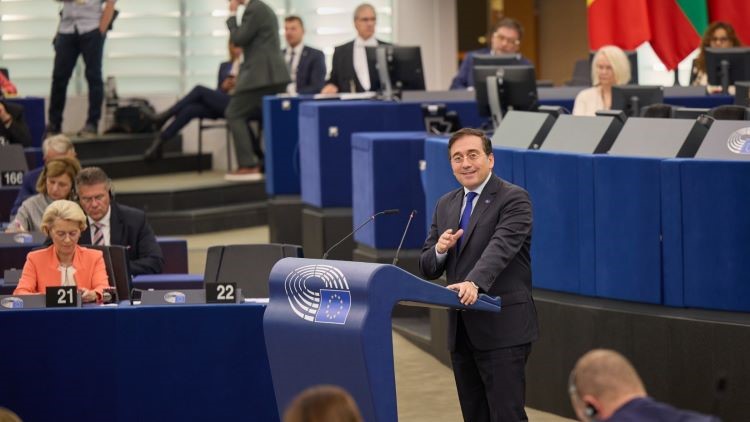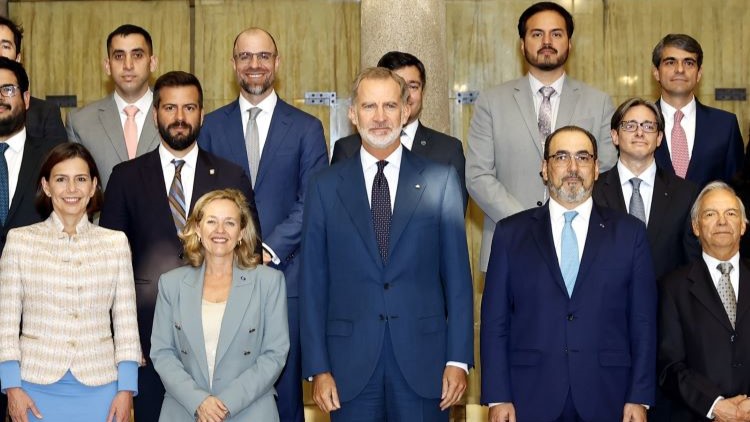The Diplomat
The acting Minister of Foreign Affairs, José Manuel Albares, spoke yesterday in the debate on the State of the European Union in the European Parliament, held in Strasbourg (France) and in which he outlined the priorities of the current Spanish Presidency of the Council of the EU, the last full before the European elections, which will force to “negotiate a large number of key dossiers”.
The debate began with the intervention of the President of the European Commission, Ursula von der Leyen, who assured that, in these last four years, “results have been achieved in more than 90% of the political guidelines” presented by herself in 2019, when she set out her program for the first time.
Among the major challenges facing the EU, the president referred to the Green Pact and the decarbonization of European industry “while maintaining its competitiveness”, the importance of a “just transition” for farmers, families and industry, and the use of artificial intelligence to improve healthcare, boost productivity and tackle climate change.
She also announced that the Commission will propose the extension of temporary EU protection to Ukrainians and a contribution of an additional €50 billion over the next four years for investments and reforms in Ukraine. Von der Leyen also spoke on the rule of law, enlargement, migration, EU-Africa relations, the Global Gateway initiative, climate change, food security and the upcoming Summit with the social partners.
After the President’s speech, José Manuel Albares assured that “the Spanish Presidency wants to embody European values for the benefit of our citizens” and detailed before the MEPs the main priorities of Spain’s six-month European Presidency: reindustrialization and open strategic autonomy, green transition and environmental adaptation, greater social and economic justice and the strengthening of European unity.
He also warned that the Russian aggression against Ukraine “highlights the value of European unity” and recalled, in this regard, that on the first day of the Spanish Presidency, the President of the Government, Pedro Sánchez, told the Ukrainian Parliament in Kyiv that Europe will continue to be “with the Ukrainian people for as long as necessary”. He also pointed out that a few weeks ago, during the informal meeting of EU Foreign Ministers in Toledo, the Member States reinforced “together” their “commitment to help and support peace in Ukraine”.
Albares also warned that the Spanish Presidency coincides with a “decisive moment” for the EU, because it is the last full term before the European elections and the next European legislative cycle. This circumstance, he recalled, will force “the negotiation of a large number of key issues from the point of view of European integration and which represent great advances in the social, environmental and economic fields, which have a positive impact on the welfare of our fellow citizens”.
Along these lines, he called for “relations between the institutions to continue to be as fluid as possible” and, to this end, he informed the European Parliament that the Spanish Presidency “has begun with the utmost determination, demonstrating the deep pro-European vocation that drives the Spanish Government”. In this regard, Albares informed the MEPs that, in just the first month of the Presidency, 25 trialogues (meetings between the Commission, Council and European Parliament) have already been held, “and the pace will increase even more in the coming months”.







